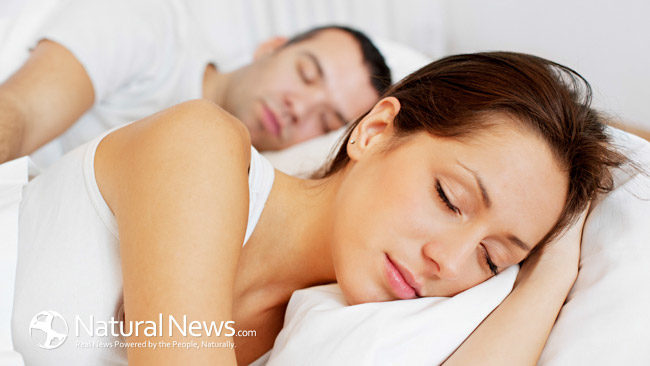Sleep is important to maintaining your health, and poor sleep can lead to dangerous conditions and a general feeling of malaise. This not only can cut your life short, it can also make it generally miserable to be awake. While conditions such as sleep apnea or other sleep disorders can make it difficult to achieve a restful sleep, sometimes getting a good night’s sleep is as simple as creating a good sleeping environment.
Get Rid of the Noise
You may think that you can’t fall asleep without some sort of background noise, such as a radio, TV or “white noise” device. While many people believe that this helps them get into an adequate sleep cycle, in the long run it is actually detrimental to your sleep as a whole because it makes it harder to achieve REM sleep-which is when you get the most rest. It may be difficult, but try to eliminate as much noise as possible. Eventually, you will adjust to the relative silence and you will get an overall better sleep experience.
Turn off the Electronics
It’s difficult to escape the intrusion that electronic devices such as TVs and laptops have on our modern life, but one place that these devices have no place in is your bedroom-especially when you are trying to fall asleep. Watching TV before bed may mean that you get involved in a show and stay up later.
The same goes for working or surfing the internet before bed. Not only that, but the bright screens of modern electronics operate on a light blue frequency-meaning that they mimic the daytime.
This can deceive your body into thinking that it is actually day, and time to be awake-meaning that you won’t get a good night’s sleep. This eventually can mess up your circadian rhythm, which makes it harder for you to fall asleep at the right time (night) and makes you more likely to be tired throughout the day. Get rid of the electronics to sleep better.
Keep Your Room Dark
Your body is designed to sleep at night, and up until recently, the night was a dark place. The influx of city lights, traffic and electronic devices (as discussed earlier) mean that night isn’t always as dark as it used to be.
Artificial lights coming into your bedroom from any source trick your body into thinking that it’s daytime, and prevent you from getting a good night’s sleep. Close your window shades, if this still doesn’t keep the artificial light out, cover your windows with a blanket or other thick cloth. Don’t keep a light on in another room and never, ever, use a nightlight-you’re an adult now, and there is no reason to be afraid of the dark.
Get a Comfortable Bed
If you’re bed isn’t comfortable, then you will not only find it hard to get to sleep, you may wake up several times a night and end up getting a poor night’s sleep. Ways to tell if you are sleeping in a bed not designed for your particular body are waking up stiff, tired or just plain sore.
You may also notice that you get better sleep on a different bed or surface (like a couch or hotel room). The same goes for an older mattress that is lumpy, ripped or otherwise damaged, mattresses are designed to last about 10 years, so if yours is older than that, it might be why you’re uncomfortable at night-and not sleeping well.
Whether you prefer a soft mattress or firm one, there are mattresses available for every body-and every budget. Some mattresses even allow you to adjust your sleep settings, meaning that you can find the right level of firmness to help you sleep at night.
Get Yourself Comfortable
Comfort doesn’t stop with your mattress-you need to make sure that you (and the rest of your room) is as conducive to sleep as possible. Find out what you like to sleep in-be it fuzzy pajamas or in the buff and stick with it; if your body isn’t comfortable, you’ll not only have trouble falling asleep, you’ll also find it difficult to get good sleep.
Find a good temperature for you and try to keep the room as close to that as possible; make sure to take into account the effect blankets may have on your temperature (some people require blankets in order to fall asleep).
Useful References:
http://www.wikihow.com/Sleep-Comfortably
http://www.personalcomfortbed.com/pages/Mattress-Care.html
http://www.helpguide.org/articles/sleep/how-to-sleep-better.htm





